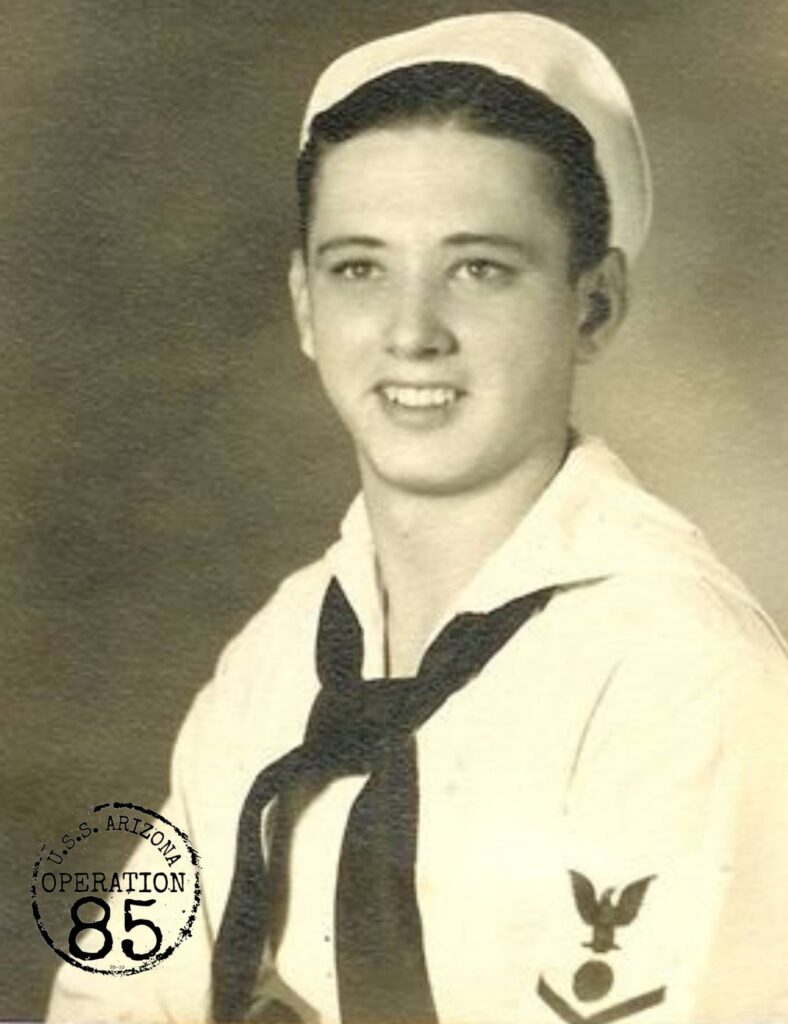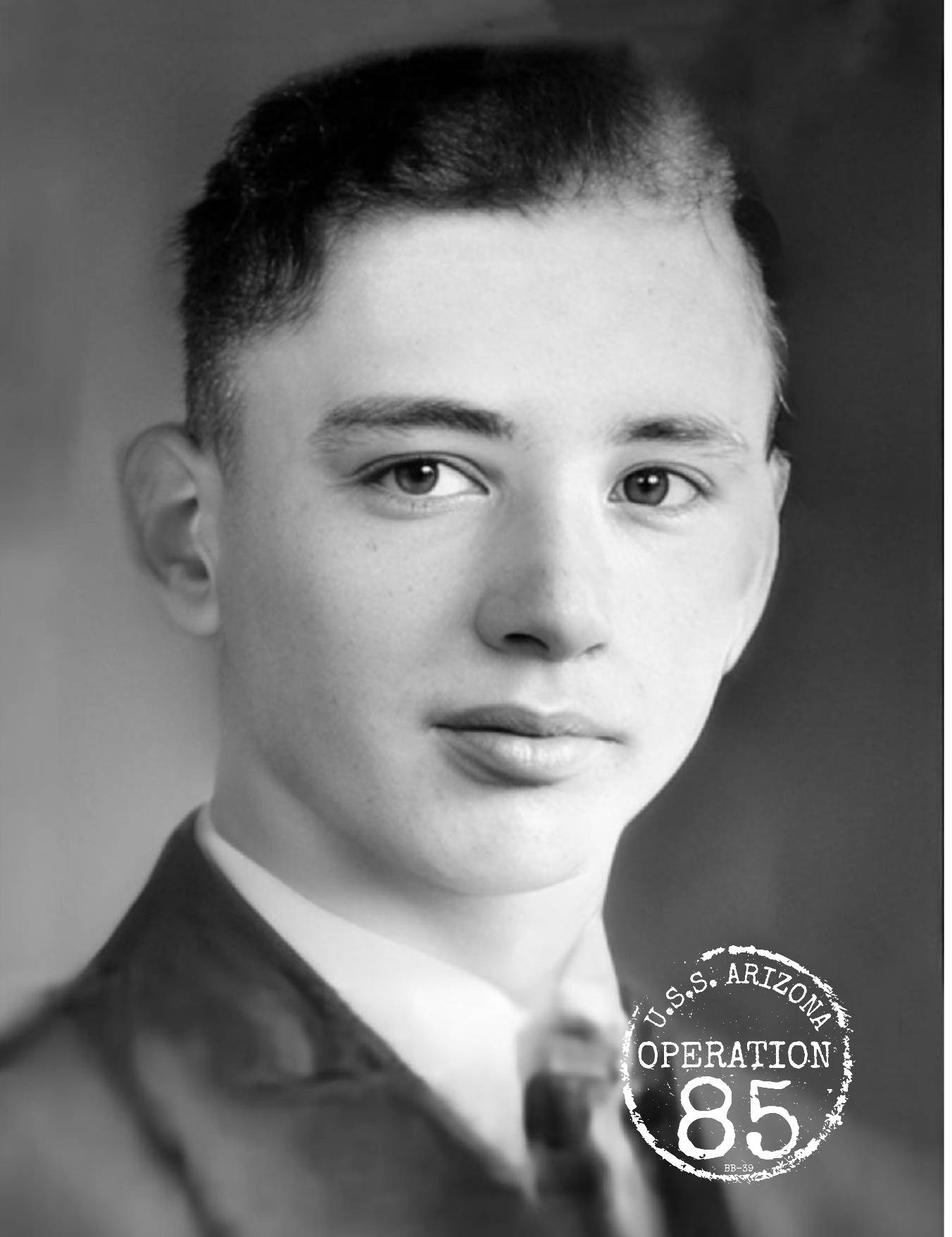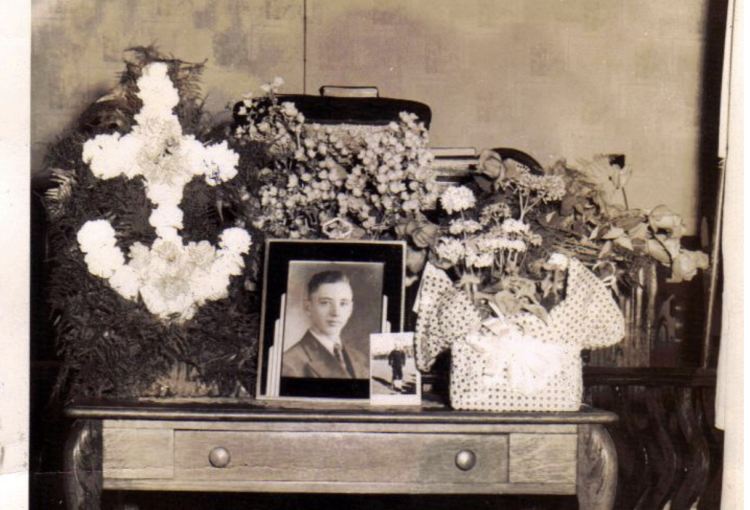

- Rank: Electrician's Mate 3rd Class
- Serial No: 342-30-12
- Branch: US Navy
- Enlisted: October 14, 1940
- Home Town: Richland, KS
- Date Of Birth: July 19, 1919
- Age: 22
- Height: 5'-7"
- Disposition: Unrecovered
- Family DNA on File: YES
EM3c Elwyn LeRoy Brown
As high school seniors, Elwyn LeRoy Brown and a classmate planned the Mother’s Day 1938 service at United Brethren Church in Richland, Kansas.

They chose “The Christian’s Challenge to the World” as the theme and “Be ye doers, and not hearers only” as the text.
Mr. Brown read from John 14 and he and his friend, Lloyd Barbee, sang.
The young men continued to sing together at church, and in early October 1940 performed “I Come to the Garden Alone” — a popular gospel song.
Mr. Brown enlisted in the Navy two weeks later. His mother organized a farewell oyster supper for family and friends before he left for the Great Lakes training center. From there he went to Bremerton, Washington, to join the crew of the U.S.S. Arizona, before it sailed for Hawaii.
In a letter home in March 1941 Mr. Brown described a sightseeing trip by bicycle through Honolulu. “The YMCA arranges fine services every hour in the day,” his hometown newspaper, The Richland Citizen, wrote in describing his letter. “No sailor in port need be lonely with no place to go. However, Elwyn feels with all the forces for good, the morale in that city, which might be said of any, has room for improvement, and that the world still needs the sustaining hand of the Almighty.”
Elwyn Brown was killed nine months later in the Japanese attack on Pearl Harbor on Dec. 7, 1941. He was an electrician’s mate third class – an entry-level petty officer.

Mr. Brown was born in Kansas City, Missouri, on July 19, 1919 to Minor L. Brown, a stockyards salesman, and Lydia Bodenhausen Brown, a homemaker. He was one of six graduates of Overbrook High School at Richland. He sang in a mixed octette that earned a superior rating at the 1938 Kansas high school music contest. Mr. Brown worked on a farm after graduation.
Richland, Kansas — southeast of Topeka — was mostly leveled in 1974 and is now considered a ghost town.
